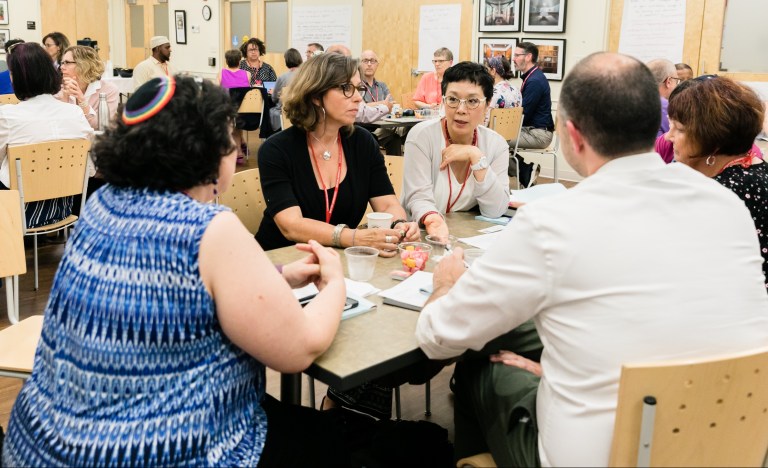This summer, over 40 educators, chaplains, and administrators gathered to kick off the Educating Effective Chaplains project—an initiative at the Boston University School of Theology focused on training the next generation of professional chaplains. During the two-day convening, attendees discussed challenges in providing responsive spiritual care, such as how to prepare for the needs of specific communities like prisons, universities, the armed forces, and healthcare, which can greatly differ from those of congregations or parishes. The cohort will meet again at subsequent summer conferences to continue exploration and development of these ideas.
From July 30 to August 1, the full cohort of the Educative Effective Chaplains project met at Boston University to kick off its three-year project and lay the groundwork for a landmark contribution to the field of spiritual care. A defining feature of the gathering was the sheer diversity of attendees. From the beginning this project has sought to cultivate a rich conversation between educators, CPE supervisors and trainers, chaplains, and administrators. The conference illustrated how fruitful that approach is proving to be, with over 40 representatives from mainline Protestant seminaries, free church theological schools, pioneering educators from Muslim, Buddhist, and Jewish institutions, and a wide variety of approaches to spiritual care.
The conference kicked off with a dinner and introductions at the Dahod Family Alumni Center on Boston University’s campus overlooking the Charles River. Attendees were welcomed to the University by Mary Elizabeth Moore, Dean of the School of Theology, who offered her appreciation and encouragement of the group’s efforts to foster a new generation of responsive spiritual care. For the next two days, attendees gathered at the School of Theology and AC Hotel at Cleveland Circle to discuss the overarching framework of challenges to the profession and solutions for the future. “I found myself particularly impressed by the depth and breadth of thinking that our group put into these questions,” said Shelly Rambo, the project’s principal investigator and professor at BU’s School of Theology; “the opportunity for frank discussion and thinking outside the box is leading us in some very interesting directions.”







